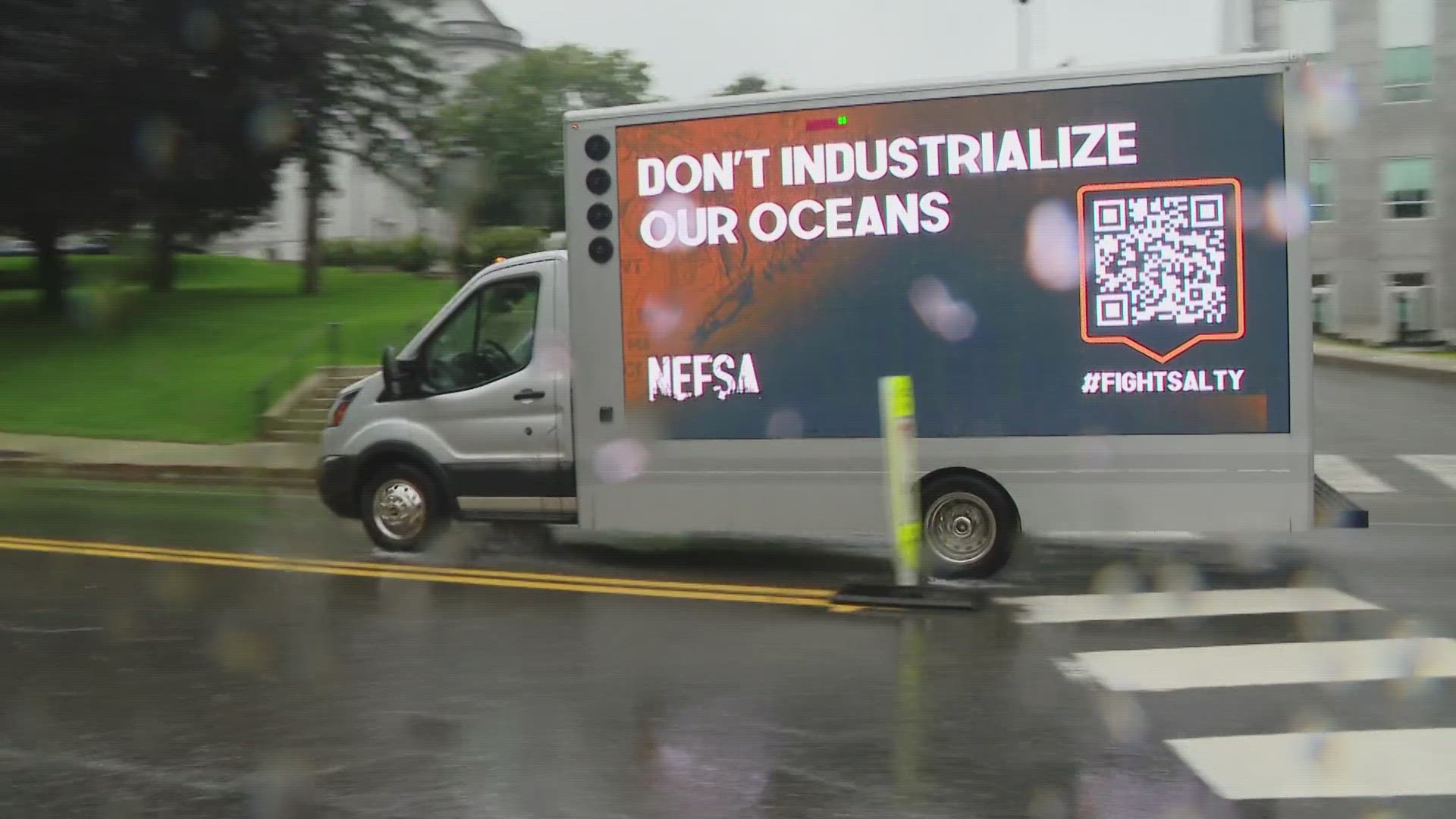AUGUSTA, Maine — A billboard attached to a truck took laps around the Blaine House Tuesday afternoon in Augusta.
On the side of the billboard was a plea to stop offshore wind development. The billboard was provided by the New England Fishermen's Stewardship Association and was a response to the moves made by the Maine Legislature to further the development of offshore wind projects.
In June, Governor Mills signed off on LD 1895, which was an offshore wind bill that not only preserves lobster fishing areas for Maine, but will pave the way for wind turbines to be constructed on land in coastal communities before being towed out to federal waters for use.
"Once those things go out in the water there is no going back," Jerry Leeman, the founder of the New England Fishermen's Stewardship Association, said.
Leeman said the concerns of fishermen have not been accounted for during the planning process. He also said not enough research has been done into the impacts offshore wind development can have on wildlife in the ocean.
"It's not that any fisherman is against going green... the fishing industry is something that was passed on to us and the fact that once we implement these things it could be the last of a generation," Leeman said.
NEWS CENTER Maine reached out to Governor Mills' office for comment on the billboard protest, and representatives pointed to the federal Bureau of Ocean Energy Management instead.
Over the course of the 2023 Legislature, Governor Mills laid out preferences for a potential offshore wind bill that protects the construction of windmills in Maine.
Her administration also pointed to the legislation signed in 2021 preventing offshore wind from being built in state waters.
The planning for offshore wind has included the input of fishermen in recent months, including Bob Humphrey, who sits on the Maine Offshore Wind Research Advisory Board.
Humphrey, a commercial and recreational fisherman out of Pownal, said he agreed more research needed to be done into the impacts offshore wind has on wild fisheries.
"Most fishermen would agree we are not really happy about it but we acknowledge it's going to come, so let's make the best of it," Humphrey said.
Humphrey said he and other fishermen will continue to advocate for more research to be done on the potential climate and wildlife impacts this proposed clean energy could bring.
He also added the finished product is still years away and that is more time to research these things.
"Unless they can find a way to fast-track it, it will be years," Humphrey said.

